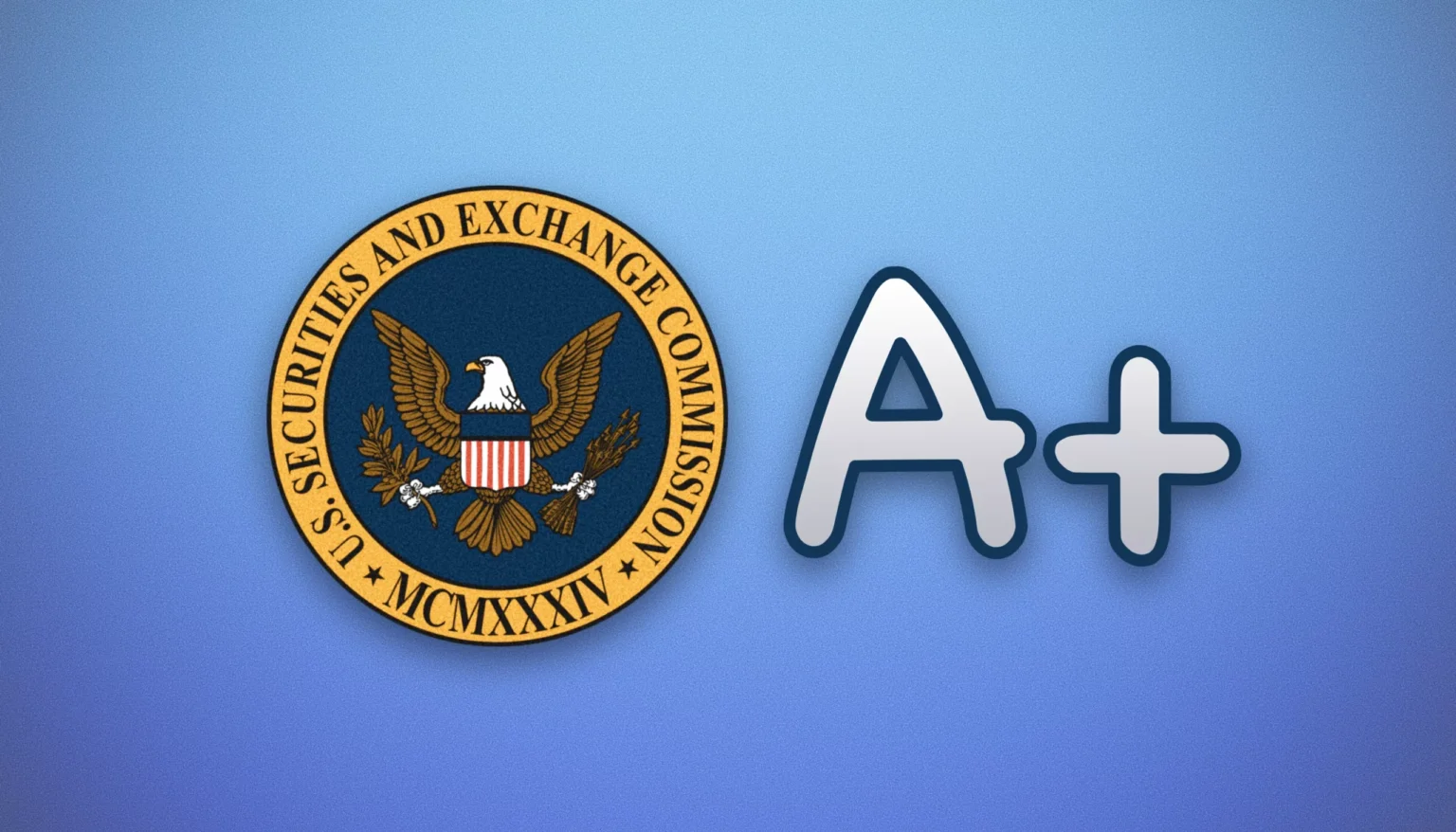On December 13, 2013, the SEC issued a proposed rule, which contains a draft of the long-awaited regulations implementing Section 401 of the Jumpstart Our Business Startups Act (JOBS Act), creating a new securities registration exemption commonly known as “Reg. A+.”
The rule is actually a revision to an existing exemption called Regulation A. Reg. A currently exempts small public offerings of up to $5 million in one year from federal securities registration requirements. To make use of the exemption, issuers must file an offering statement, which is a simpler version of the prospectus required in a registered offering. The offering statement must be cleared (or “qualified” in the language of Reg. A) by the SEC. Issuers can “test the waters”[1] with potential investors before filing the offering statement. Reg. A permits general solicitation and general advertising, and the securities issued are not “restricted securities” and thus not subject to limitations on resale. In addition, purchasers need not be accredited investors. Although Reg. A offerings are simpler and less costly than registered offerings and more permissive in scope than private placements, Reg. A has rarely been used compared to registered offerings or private placements under Rule 506 of Regulation D. This is largely because the Rule 506 exemption is less expensive to comply with and preempts state securities law (so issuers do not need to comply with costly and complicated state requirements) and allows issuers to raise an unlimited amount as opposed the $5 million allowed under Reg. A. The increased costs associated with a Reg. A offering (both the SEC qualification and the state-by-state requirements) is rarely justified in an offering under $5 million. Consequently, Reg. A has not offered a useful alternative to issuers.
Section 401 of the JOBS Act may change that. It added a new section to the Securities Act instructing the SEC to increase exemption eligibility for small offerings of up to $50 million of securities in any one year. This larger exemption has been dubbed “Reg. A+,” though that is not an official name. The proposed rule bifurcates Reg. A, creating a “Tier 2” offering exemption for offerings up to $50 million in addition to the existing Reg. A exemption for $5 million, now called a “Tier 1” offering. Changes to the rule comprise issuer eligibility requirements, requirements for the content and filing of offering statements, and ongoing issuer reporting requirements. Use of Tier 2 will trigger:
- Enhanced disclosure requirements, including a requirement to provide audited financial statements.
- Electronic filing of annual and semiannual reports and updates and other reporting requirements so long as stock is held by at least 300 record holders or until the issuer begins reporting under the Exchange Act.
- A requirement that the investors’ purchase in the Reg. A offering be no more than 10% of the greater of their net worth or net income.
- Preemption of state securities law registration.
In my view, the last item on that list is the most significant element of the proposed rules. The JOBS Act amended the Securities Act to add securities sold in a Tier 2 offering to the category of securities exempt from state registration if they were either offered or sold on a national securities exchange or offered or sold to a “qualified purchaser,” as defined by the SEC. The SEC took a very expansive approach to preemption, as the proposed rules do not require that the Tier 2 securities be listed on a national exchange, but rather that they be offered or sold to “qualified purchasers,” and define that term as all purchasers in a Tier 2 offering. If adopted, this would mean that all Reg. A Tier 2 offerings would have preemption, just as Rule 506 offerings do. Without preemption, issuers in a Tier 2 offering would have to either register or seek an applicable exemption in each state in which they wished to offer securities. With state preemption, issuers may find the new exemption an effective alternative for capital formation.
I’m generally supportive of the SEC’s approach, which if adopted as proposed will contribute to making Reg. A a meaningful capital-raising tool for small issuers. Perhaps predictably, the leadership of the North American Securities Administrators Association (NASAA) has issued a formal objection to the proposed rules’ preemption of state registration requirements. NASAA’s position is that because state authorities are closer to resident issuers and investors, they are better equipped to monitor offerings to prevent and punish securities law violations as well as to improve the overall quality of offerings. It points out that many violations resulting in incarceration and restitution stem from Reg. D offerings. It proposes a new coordinated, multi-state review program under which issuers would make central filings which are then distributed electronically to all states for a 10-day review. Issuers would interact solely with “lead examiners,” who make a binding determination to clear each application. The entire process should take a minimum of 30 days.
If all states buy into the coordinated review program, it could prove a workable alternative to preemption, although it does add some time and some extra expense to the process. In its request for public comment, the NASAA notes that issuers need to select which states it intends to apply to upfront; it may not be possible to add states later. This means an issuer must be certain about the scope of the offering when it makes the initial filing. Given that Reg. A offerings permit general solicitation and advertising, they are likely to be conducted nationwide. In that case, issuers will want to select all states. If all states don’t sign on to the program, however, issuers will still have to consider the registration requirements and any applicable exemptions in those states that don’t utilize the program, or try to avoid those states, rendering the review program a far less desirable alternative to state preemption. I certainly understand the position of state regulators and investor advocates, but the disclosure and reporting regime required by Reg. A already provides a good deal of investor protection.
The one major downside of the proposed rule is that companies that use a Tier 2 offering are still subject to the ongoing Exchange Act reporting requirements which kick in when an issuer’s total assets exceed $10 million and its security holders reach 2,000 people or 500 who are not accredited investors (who must have a certain net worth or income or meet other conditions). This will almost certainly be the case since the issuer’s shares will likely be more widely held. This requirement may reduce the attractiveness of the exemption, as such reporting constitutes an expensive and time-consuming burden for the issuer. In my view, the SEC should consider exempting securities issued in a Reg. A offering from Exchange Act reporting requirements for a limited time (e.g., two years), especially since the proposed rules already have a more modest but thorough reporting regime built in.
With that said, while it has gotten the least amount of coverage in the press, Reg. A+ may turn out to be the most useful of the three major new exemptions under the JOBS Act (the other two being Rule 506(c) and crowdfunding). As proposed, it allows for (a) general solicitation, (b) purchase by non-accredited investors, and (c) state preemption, a combination that no other exemption currently features. Of course, in response to the concerns expressed by NASAA, the SEC may water down or eliminate preemption completely, which would greatly curtail the usefulness of the exemption, though perhaps not eliminate it completely. In either event, we are likely to see a greater frequency of the use of Reg. A offerings in the near future.
Footnotes
[1] Essentially, testing the waters means talking to investors prior to the qualification of the offering statement. In most cases, testing the waters is prohibited in a registered offering.
This article is for general information only. The information presented should not be construed to be formal legal advice nor the formation of a lawyer/client relationship.





